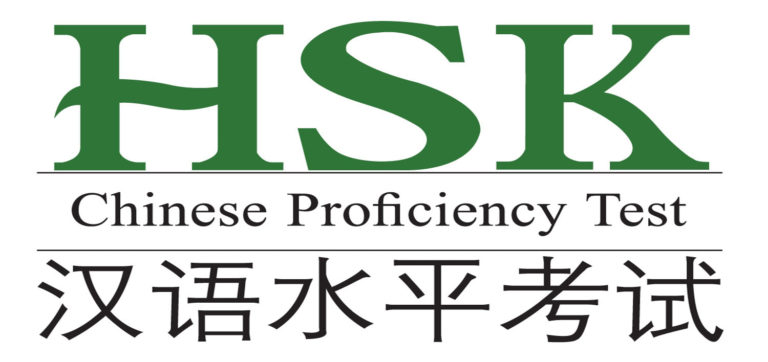The Chinese Language Program Scholarship 2023 is a prestigious grant aiding international students in pursuing Chinese language and cultural studies in China.
Table of Contents
Eligibility Criteria
The eligibility criteria are set to ensure that all applicants have a uniform and clear understanding of what is required to apply for the Chinese Language Program Scholarship 2023. Meeting these requirements is essential for a successful application.
Nationality Requirements
- Applicants must hold a non-Chinese passport.
- Permanent residents of Mainland China, Hong Kong, Macau, and Taiwan are not eligible.
- Applicants with dual citizenship should apply using their non-Chinese passport.
Academic Qualifications
- Applicants must have completed their high school education or its equivalent.
- Undergraduate students wishing to apply should be in good academic standing in their respective institutions.
- Postgraduate applicants should have a recognized bachelor’s degree or its equivalent.
Language Proficiency
- Applicants should possess a basic understanding of Mandarin to benefit from the program.
- Prior knowledge of Chinese is not mandatory but can be an added advantage.
- Proof of language proficiency in English or Chinese may be required, depending on the specific program or university requirements. For instance, submitting HSK (Hanyu Shuiping Kaoshi) scores for Chinese or IELTS/TOEFL scores for English might be necessary.
Scholarship Benefits
The Chinese Language Program Scholarship 2023 offers numerous advantages that aim to make studying in China a rewarding experience. From tuition fees to living expenses, the scholarship aims to alleviate some of the financial burdens students might face.
Tuition Coverage
- The scholarship provides full coverage of tuition fees for the entire duration of the program.
- This includes fees related to courses, labs, and other academic activities.
- Students need not worry about any additional academic costs, ensuring they can focus solely on their studies.
Living Allowance
- A monthly living allowance is provided to support students’ day-to-day expenses.
- The exact amount varies depending on the city of residence, taking into consideration the cost of living. For example, living in major cities like Beijing or Shanghai might come with a slightly higher allowance.
- This allowance aims to cover accommodation, food, transportation, and other basic necessities.
Other Incentives
- Scholarship recipients receive comprehensive medical insurance, ensuring they get quality healthcare when required.
- There are opportunities to attend cultural immersion activities, excursions, and language exchange programs at no extra cost.
- On successful completion of their program, some students might be offered internships or job placements through the university’s career services.
Application Process
Navigating the application process for the Chinese Language Program Scholarship 2023 is crucial for prospective students. Ensuring that all steps are followed diligently increases the chances of a successful application. Below is a detailed breakdown of the process.
Required Documents
- Passport Copy: A clear, colored scan of the applicant’s passport.
- Academic Transcripts: Official transcripts detailing academic performance in previous institutions.
- Recommendation Letters: Typically, two recommendation letters from professors or academic advisors.
- Statement of Purpose: A detailed essay explaining the applicant’s motivation to study in China, their academic interests, and career aspirations.
- Language Proficiency Certificates: Relevant certificates like IELTS, TOEFL, or HSK, depending on program requirements.
- Medical Examination Report: A comprehensive medical checkup report from a recognized hospital or clinic.

Application Deadlines
- Early Bird Submission: Often in December, for those wishing to get a head start and perhaps receive early feedback.
- General Submission: Typically closes by end of March.
- Late Submission: Some universities or specific programs might have extended deadlines till May, but it’s always best to check and not rely on this.
Selection Process
- Initial Screening: After the application deadline, the first round involves screening of documents and shortlisting candidates.
- Interviews: Shortlisted candidates might be invited for an online or in-person interview. This is a chance to showcase one’s passion and commitment beyond the written documents.
- Offer & Acceptance: Successful candidates receive their scholarship offers, typically by June. It’s important to accept the offer formally by the stipulated date.
- Orientation & Onboarding: Before the start of the academic session, there might be an orientation program, providing an opportunity to understand the campus, curriculum, and to mingle with fellow scholars.
Participating Universities and Institutions
The Chinese Language Program Scholarship 2023 collaborates with a range of prestigious universities and institutions. This not only amplifies the reputation of the scholarship but also provides students with diverse options to pursue their studies in varying environments, catering to different academic interests and career aspirations.
List of Universities
- Beijing University: Situated in the heart of China’s capital, it offers a rich historical and modern blend of culture and academics.
- Shanghai Jiao Tong University: Located in the bustling city of Shanghai, it’s renowned for its rigorous academic programs and international outlook.
- Tsinghua University: Another gem in Beijing, it boasts world-class faculty and a sprawling campus.
- Xiamen University: Situated in the beautiful coastal city of Xiamen, it provides a serene learning environment combined with top-notch academic facilities.
- Sichuan University: Nestled in Chengdu, known for its pandas and spicy cuisine, the university provides a unique blend of local culture and academic excellence.
Collaboration with Other Institutions
- Confucius Institutes Worldwide: These institutes, spread across the globe, promote Chinese language and culture. They often offer preparatory courses and bridge programs for prospective scholarship students.
- Chinese Cultural Centers: Offering a myriad of workshops, seminars, and exchange programs, these centers are pivotal in promoting cross-cultural understanding.
- Overseas Partner Universities: Collaborations with universities outside of China allow for exchange programs, joint research, and dual degree options. This not only enhances the academic experience but also broadens the global perspective of students.
Choosing the right university or institution is a crucial step in ensuring a fruitful academic journey. It’s always recommended to research extensively, visit the campuses if possible, and reach out to current students or alumni to gather insights and make informed decisions.
Program Duration and Curriculum
The Chinese Language Program Scholarship 2023 aims to provide a comprehensive academic experience, not just in terms of language proficiency, but also in deepening the understanding of Chinese culture, history, and contemporary society. This section details the overall duration, academic components, and the cultural experiences that come with it.
Duration of Scholarship
- Undergraduate Programs: Typically, these last for four years, except for specialized programs like medicine, which can extend to five or six years.
- Masters Programs: Generally, these span two to three years, focusing on advanced studies and research.
- Short-term Courses: These are condensed programs lasting anywhere from a few weeks to six months, focusing on intensive language training and cultural exposure.

Core and Elective Courses
- Core Courses: These form the foundation of the program. Topics may include:
- Basic Chinese Grammar and Syntax
- Advanced Mandarin Proficiency
- Chinese Literature and Poetry
- Chinese History and its Dynasties
- Elective Courses: These allow students to customize their learning based on interests. Examples might include:
- Chinese Business Etiquette and Practices
- Traditional Chinese Art and Calligraphy
- Contemporary Chinese Society and Media
- Chinese Culinary Arts
Cultural Immersion Activities
- City Tours: Explore historical landmarks, museums, and cultural heritage sites in cities like Beijing, Xi’an, and Hangzhou.
- Traditional Workshops: Engage in activities like tea-making, Chinese calligraphy, or tai chi.
- Cultural Exchange Meets: Interact with local students, families, or professionals to understand daily life, customs, and traditions.
- Local Festivals: Participate in festivals like the Lunar New Year, Mid-Autumn Festival, or the Dragon Boat Festival to experience the richness of Chinese culture firsthand.

